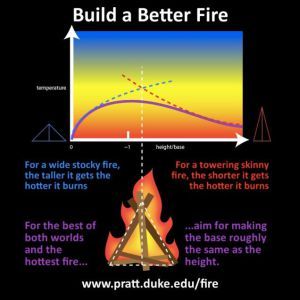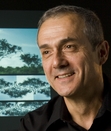Adrian Bejan's Blog, page 14
January 27, 2017
Evolution and the City
[image error] “A lot of care and attention is payed to urban planning, but the evolution of human settlements happens naturally because it is governed by a law of Physics.”
The evolution of the City is discussed by professor Adrian Bejan in the February 2017 issue of the Mechanical Engineering magazine.
Source
A. Bejan, Evolution and the City, Mechanical Engineering, ASME, Feb. 2017, p. 44-49.

November 24, 2016
Donald Trump victory predicted in July, 2016 – thanks to the Constructal Law
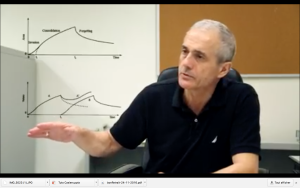 On 25 July 2016, in an interview by the GEC MOOC team, Professor Adrian Bejan predicted that Donald Trump would win the US Presidential Election on 8 November 2016, on the basis of the S-curve theory of the Constructal Law in physics, as showed in the Figure 8.1, page 157, in his book The Physics of Life.
On 25 July 2016, in an interview by the GEC MOOC team, Professor Adrian Bejan predicted that Donald Trump would win the US Presidential Election on 8 November 2016, on the basis of the S-curve theory of the Constructal Law in physics, as showed in the Figure 8.1, page 157, in his book The Physics of Life.
Sources
Video (YouTube): HK PolyU – GEC – Prof Bejan predicted that Donald Trump would win the US Presidential Election , 2’18”.
A. Bejan, The Physics of Life , St. Martin’s Press, May 2016, 272 p.

August 28, 2016
Duke Professor Redefines Our Existence through ‘The Physics Of Life’
Frank Stasio talks on the national public radio, WUNC, with Adrian Bejan, professor of mechanical engineering at Duke University, about ‘The Physics of Life.
Source
Will MICHAELS, Frank STASIO, ‘The Physics Of Life’: Duke Professor Redefines Our Existence, WUNC, AUG 25, 2016

August 21, 2016
The Physics of Life: a review
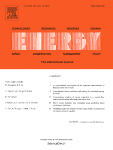 An in-depth analysis and a detailed review of every chapters of Adrian’s Bejan last book , “The Physics of Life: The Evolution of Everything“, is provided by M. M. Awad in this article, published in the Energy journal:
An in-depth analysis and a detailed review of every chapters of Adrian’s Bejan last book , “The Physics of Life: The Evolution of Everything“, is provided by M. M. Awad in this article, published in the Energy journal:
“This book is an invitation to think and to have fun with ideas. Adrian Bejan concludes that the constructal law “is bound to evolve, to serve our thinking better”. My own conclusion is that readers of this book are able to see the world more clearly, and to predict its future better and with greater confidence.” – M. M. Awad
M. M. Awad, “The Physics of Life: The Evolution of Everything, Adrian Bejan, St. Martin’s Press (2016), 272 pages, ISBN: 978-1250078827”, Book Review, Energy, Volume 114, 1 November 2016, pp. 568, doi: 10.1016/j.energy.2016.08.032

July 21, 2016
Sitting around the (constructal) campfire
In this article, Brian Resnick quote Prof. Adrian Bejan in order to provide us with some good advices on building a successful pyre, and discusses the processes tooking place while sitting around the campfire.
In a study published in 2015 in one of the Nature Scientific Reports, Professor Adrian Bejan, effectively showed that the best fires share the same design pattern: they are roughly as tall as they are wide.
Brian Resnick, Campfires, explained, Vox.com, July 20, 2016.
Ken Kingery, The Shape of a Perfect Fire, Duke.edu, June 8, 2015.
Adrian Bejan, Why humans build fires shaped the same way, Nature, Scientific Reports 5, Article number: 11270 (2015), doi:10.1038/srep11270.

July 5, 2016
(un)Common Resemblance: Constructal Art
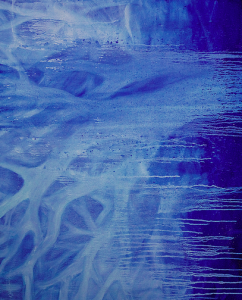
© Christine Forni
Christine Forni is a Chicago-based, multidisciplinary artist, with a foot in Paris. She is preparing an exhibition inspired by Constructal designs, in Nature:
“A glimpse into Forni’s studio while she prepares for an exhibition exploring natures similiarities. […]. She’s intrigued by how all things in nature have commonality in their visual structures for flow systems. This can be seen in capillaries, coral, lightning, antlers, rivers and trees.”
(un)Common Resemblance, http://www.christineforni.com/#!constructal-law/c1nx4

June 26, 2016
Life and Evolution, as Physics
“In this lecture Prof Bejan draws attention to the theoretical work that places the phenomenon of evolution and life in physics, the biological and the geophysical realms together. He show that all evolutionary forms of flow organization are in accord with and can be predicted by the physics law that governs evolution in nature: the constructal law. He focuses on us. We are evolving as the “human & machine species.””
Durham Castle Castle Lecture Series 2015/16, Professor Adrian Bejan J.A. Jones Professor of Mechanical Engineering, Professor of Mechanical Engineering and Materials Science, Duke University, 27th April 2016, 19:45 to 20:00, Great hall.
Lecture (Video)

June 4, 2016
Rolling stones & the laws (of Physics)
 In this interview with Shawn Fitzmaurice, Prof. Adrian Bejan discusses his recent article published in the Nature Scientific Reports, putting Nature, evolution, and life altogether.
In this interview with Shawn Fitzmaurice, Prof. Adrian Bejan discusses his recent article published in the Nature Scientific Reports, putting Nature, evolution, and life altogether.
Sources
Shawn Fitzmaurice, If Papa Was A Rolling Stone, He’d Obey The Laws Of Physics, WFDD, Jun 03, 2016
Adrian Bejan, Rolling stones and turbulent eddies: why the bigger live longer and travel farther. Sci. Rep. 6, 21445; doi: 10.1038/srep21445 (2016).
Adrian Bejan, The Physics of Life , chapter 10.

May 30, 2016
What’s the Meaning of Life? Physics.
 In this in-depth interview pubished in the National Geographic, Jeremy Berlin discuss Adrian Bejan’s last book with his author.
In this in-depth interview pubished in the National Geographic, Jeremy Berlin discuss Adrian Bejan’s last book with his author.
“A revolutionary law of physics explains it all—sports and technology, air currents and population growth, migration and social hierarchy.”
Jeremy Berlin, What’s the Meaning of Life? Physics, National Geographic, 30 May 2016.

May 23, 2016
The Evolution of Everything
 A nice review of Adrian Bejan last book, “The Physics of Life“, is available on Duke’s Pratt School of Engineering‘s website:
A nice review of Adrian Bejan last book, “The Physics of Life“, is available on Duke’s Pratt School of Engineering‘s website:
To live or not to live, that is not even a question. […] And while the question of living is not up for debate, the question that Bejan does answer in the book is simply, “What is life, as physics?“
Pratt.duke.edu, The Physics of Life: The Evolution of Everything, May 20, 2016.



